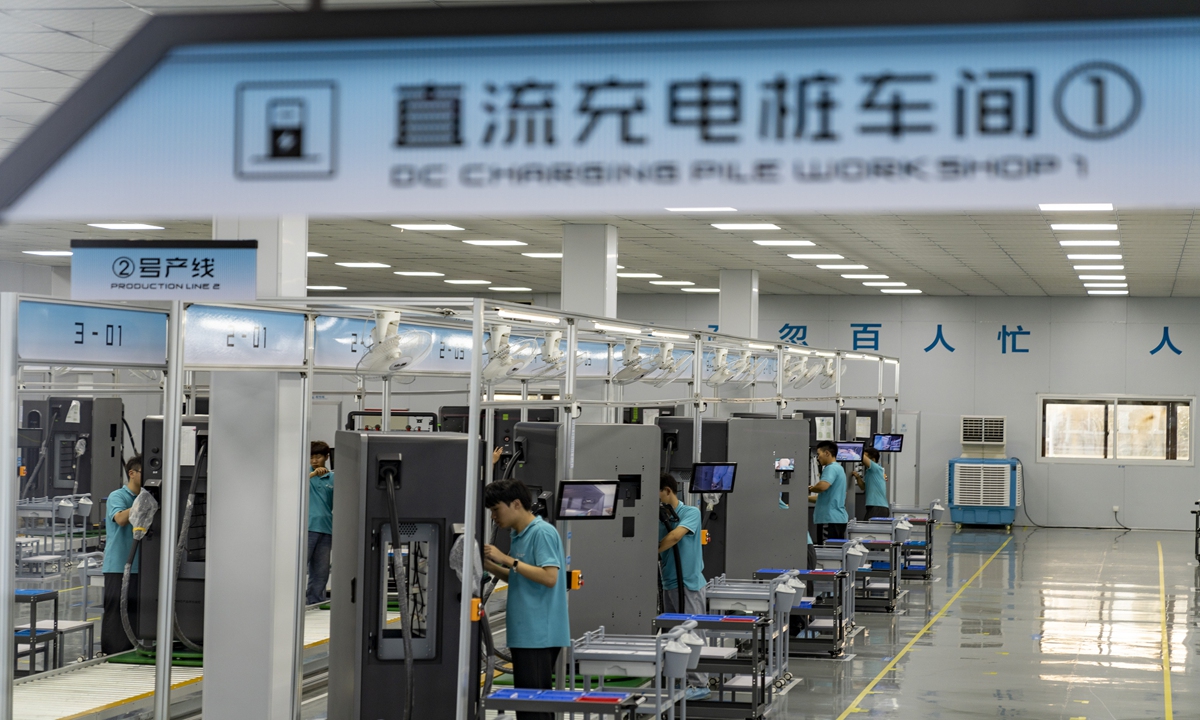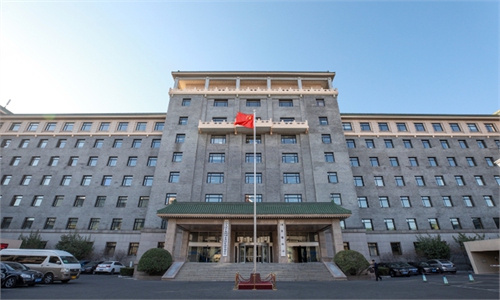A number of private Chinese firms achieve good performance in Q2, eye better expectations for the rest of the year

Workers make components for new-energy vehicles at an industral park in Hefei, East China's Anhui Province on July 27, 2023. The local government has introduced a number of upstream and downstream enterprises to speed up the new-energy vehicle industry. Photo: cnsphoto
A number of private Chinese firms including the country's largest chipmaker Semiconductor Manufacturing International Corporation (SMIC) released financial results in the second quarter of the year on Thursday and Friday, reporting revenue increases and good expectations for the rest of the year.
Observers said that China has always provided strong support for the development of private enterprises, and the financial results from these companies are a strong rebuttal to foreign media claims that the Chinese government is "cracking down" on private enterprises.
Boosted by the country's continuous economic recovery in the second half of 2023 as well as a series of policies to support the private economy, private Chinese enterprises will eye better performances in terms of revenue and profits and will have stronger expectations for their future development, experts noted.
SMIC released its second quarter 2023 financial results on Thursday. The results show that the company's sales revenue for the second quarter of 2023 increased by 6.7 percent to $1.56 billion, with a gross margin of 20.3 percent, a decrease of 0.5 percent compared to the first quarter.
The earnings report showed that the company's capacity utilization in the second quarter reached 78.3 percent, rising 10.2 percent compared to the first quarter.
Against the backdrop of a volatile semiconductor market, it is not easy for SMIC to deliver such an answer. The company's earnings per share increased from $0.03 in the first quarter to $0.05 in the second quarter, meaning that its profitability has improved, which is conducive to enriching the subsequent dividend distribution. In addition, the company's capacity utilization rate has risen, also reflecting its stable order situation.
SMIC is bullish over its third quarter and second half revenue, saying that the company's third quarter sales revenue is expected to grow 3 to 5 percent, with gross margins ranging from 18 percent to 20 percent. Sales revenue in the second half is expected to be better than the first half, the report said.
On the same day, Alibaba, one of China's private e-commerce giants, released its first-quarter earnings report for fiscal year 2024, which showed that its revenue for the quarter achieved a better-than-expected performance, reaching 234.16 billion yuan ($32.37 billion), an increase of 14 percent year-on-year.
Net income rose 51 percent to 34.3 billion yuan under global accounting standards, the company said.
Alibaba's fiscal year is not synchronized with the natural year, and its fiscal year runs from April 1 to March 31 of the following year.
E-commerce business shone in the quarter. The earnings report showed that Alibaba's domestic e-commerce business including Taobao and Tmall reversed its downward trend, with combined revenue of 114.9 billion yuan, up 12 percent year-on-year, accounting for more than half of the group's total revenue.
On Friday, Huawei released its 2023 semi-annual report. In the first half of the year, the company realized sales revenue of 310.9 billion yuan, up 3.1 percent year-on-year, with a net profit margin of 15 percent.
Regarding the operating results, Huawei said that the overall operation is sound and the results are in line with expectations.
"Benefitting from China's rapid development in emerging industries such as the digital economy and artificial intelligence, these private companies have achieved a good performance in revenue in the second quarter of the year," Hu Qimu, deputy secretary general of the digital real economies integration Forum 50, told the Global Times on Friday.
In addition, the country has provided a large market for application as well as a robust environment for digital transformation for the private companies, Hu said.
In response to the foreign media outlets' so-called crackdown on the private enterprises by the Chinese government, Hu said that some countries have "ulterior motives" to smear China's policies. The country has always provided support for the high quality and healthy development of private firms, including promoting their innovation, Hu noted.
On August 1, eight Chinese ministries issued 28 measures to support the private economy, vowing to provide fair access for private firms to participate in major national projects and technological undertakings, increasing financial and land support, and strengthening legal protection for private firms, sending another resounding signal that the country will further ratchet up support for the private sector.
Looking forward, Hu said that China will see a demand recovery in the second half of 2023, and market sentiment will improve significantly. "The broader picture of China's economic recovery after the COVID-19 epidemic will bring confidence and high expectations to the private economy," Hu noted.
Global Times

